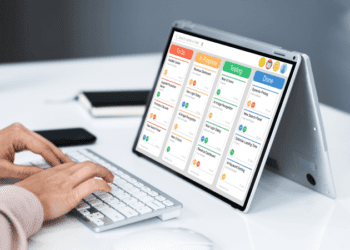In the wake of the 2013 modifications to the UPSC optional subjects Exam pattern and the syllabus, current events now play a crucial role in exam preparation that demands awareness of both domestic and global happenings. Current affairs are weighted heavily in all three of the UPSC Exam’s phases, comprising the Prelims, Mains, and Personality Test.
There is no set curriculum for this portion, and the problems cover many subjects. Candidates must keep relevant on all current happenings in the news and prepare themselves with thorough background research. A substantial percentage of the GS Paper in the UPSC Syllabus includes current affairs.
One can use BYJUS Exam Prep to get essential information for the preparation for UPSC CSE exams.
Valuable Tips for UPSC Current Affairs Practice:
A crucial component of the UPSC CSE training is current affairs. The category “Issues of national and international concern” is mentioned in the Prelims curriculum.
Additionally, it has been noted that aspirants who add current information to their descriptive replies perform better than others. Consequently, it is essential for candidates for the Civil Services to establish a routine to read about current events each day.
Candidates must carry the previous year’s model question as they practice for the current affairs portion to see what questions have been given and understand how to tackle the amount.
Essential guidelines to consider when preparing for current events to complete them successfully involve:
Know the curriculum
One should be aware of the given syllabus before starting the preparation. Maintain a list of micro topics for this with the UPSC CSE at your study station for a purpose.
Decrease the Resources
There is plenty of reading material, especially for current affairs. Aspirants can access various publications, sites, weekly publications, and annual magazines. Determining the best learning material for the UPSC exam is very important. One should only rely on the materials listed above to cover current affairs.
Learning what one should not Read
Understanding what you are not required to study is crucial when preparing for UPSC’s current affairs. Not all news in the paper is essential for UPSC’s current affairs. One might refer to our current affairs questions from prior years to better understand what must be studied.
Examine the time allotted
Only the pertinent news stories must be thoroughly read. Make sure not to spend more than an hour reading the newspaper while doing this; however, within 2 hours, you should finish reading the day’s news. Beginners might take a little longer initially. However, during the weekdays, keep your duration to a minimum of two hours per day; verify your efforts during weekdays.
Utilize online note-taking tools
While writing quick handwritten notes from significant editorials for the answers is a good idea, it should not be done for all current affairs since it takes a lot of time. One can take advantage of software like Evernote, Google Docs, etcetera to prepare notes online. Try copying the subject matter from various websites, paste it into your notes document, and organize the content by subject.
Utilize online note-taking tools
While writing quick handwritten notes from significant editorials for the answers is a good idea, it shouldn’t be done for all current affairs since it takes a lot of time. One can take advantage of software like Evernote, Google Docs, etcetera to prepare notes online. To ensure that you find the information when needed, organize the content by subject.
Continue reviewing the news
When it relates to current events, revision is fundamental. The static content of the syllabus is not particularly extensive, but the number of current affairs grows daily. As a response, constantly review current events to guarantee that you remain aware of them. Incorporate them into the composition of the reactions and continue to incorporate the most recent events while visitors prepare the static subjects.











Discussion about this post